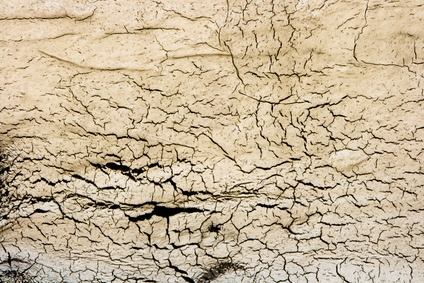
Cracking in an automotive paint job may occur in the clear coat over the paint or in the base color of the paint. Cracks form for many reasons. There may be a structural issue in the sheet metal below the paint that results in cracking. Imperfections during the painting process can also cause cracking in the paint after a period of time, such as when the paint is incorrectly mixed or applied in a very thick layer. To fix cracking on a car, you will need supplies that can be purchased from auto supply shops. If the cracking is widespread or severe, you should contact a professional.
Clean the cracked surface using a degrease cleaner and a sponge or cloth. Degrease cleaner will remove build-up from the paint.
Sand the surface using a rough grit of sandpaper, such as a 60 grit. Use the water to flush the sandpaper and surface to keep the sanded paint even. Sand enough of the surface to even the cracked area without reaching the sheet metal below the paint job.
Wipe the sanded area with the degrease cleaner to remove residue.
Prime the area with an automotive primer, if the primer has been sanded away. If the cracking occurred in the clear coat and you did not need to sand down to the primer, you do not need to prime again. Apply the primer with a paintbrush if necessary, or spray it on if it is a spray primer.
Allow the primer to dry and cure per the manufacturer's directions.
Paint the area using touch-up paint. Touch up paint can be purchased from automotive supply stores. Allow the paint to dry per the manufacturer's directions. Apply the paint with a paintbrush if necessary, or spray it on if it is a spray paint.
Wax the newly painted area using a car wax and sponge or cloth. Waxing the area will restore shine and protect the surface from future damage.